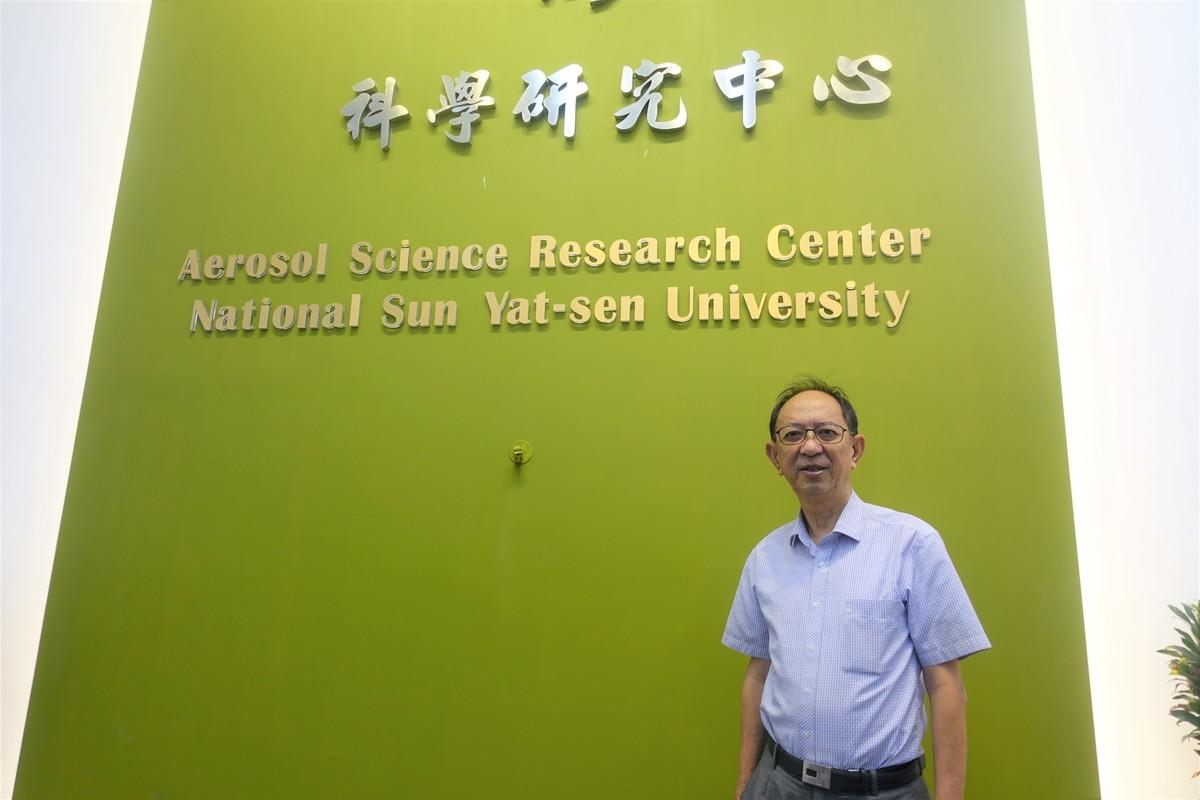
Universities are to teach how to solve problems, says Honorary Chair Professor Chung-Hsuan Chen
A university’s role is to train students’ logical thinking skills, spread more precious far-reaching knowledge and help them develop a broader perspective. Honorary Chair Professor Chung-Hsuan Chen of National Sun Yat-sen University and Fellow of Academia Sinica emphasized that merely absorbing information is much less important than in the past in the era of information overload. Hopefully, during the students' studies at NSYSU, they will find out what interests them most, dive deeper into the fields of their interest, and gain indispensable basic knowledge in other fields. Furthermore, professor Chen encouraged the students to use knowledge to solve specific problems.
After entering the university, many students in Taiwan realize that they do not like their chosen discipline or feel anxious about studying their program, which diploma is not bound to attract future employers. However, professor Chen believes that young people have high adaptability skills and shouldn’t believe that their chosen program equals a specific future career. Instead, the students should explore their interests and participate in valuable academic events and lectures. In the era of information overload, it is difficult to achieve success without a genuine interest in one’s path.
Chen encouraged students to be innovative and use their knowledge to solve current problems. It is a great lesson to search for the root of the problem, whether petty or serious. He gave the example of insulating cup cover, which the design does not require any advanced knowledge and is something that even small children could do. Its inventor, who noticed and solved this problem by design, has gained a firm footing on the market. Professor Chen also advised students to focus on what’s important, instead of being overly diligent and studying as many courses as possible in line with current trends in science and technology, as quickly absorbed knowledge will vanish from one’s memory within one year. Regarding languages, he encouraged the students to summon the courage and chat with the many international exchange students on campus – the students can quickly improve their language skills without even noticing.
Professor Chen has been researching for nearly 50 years and is currently developing innovative instruments for application in biomedicine, environmental pollution research, and materials science. For example, Chen is developing new mass spectrometry devices for biomedicine; he said that the devices available on the market could detect a molecule as big as 1 million atomic units. However, the units are costly and large in volume, so he is trying to develop a light and cheap device able to measure elements as tiny as atoms and as large as cells to make a large analytical laboratory portable. A small and convenient device could be taken to the seashore or to the mountains to measure the water or the air - this is a possible future application in PM 2.5 research.
Professor Chen is currently working with Associate Professor Chia C. Wang of the NSYSU Aerosol Science Research Center and Assistant Professor Chao-Yu Chung to detect tiny polluting particles, such as PM 2.5 or PM 10. He said that air pollution causes a great threat to human health. Therefore, we need to address this problem, particularly in Kaohsiung, traditionally an industrial city, where heavy industries such as China Steel Corporation, Chinese Petroleum Corporation, CSBC Corporation operate today. Therefore, air pollution issues will attract more and more attention in the future, he claimed. He also mentioned that aerosol science is about controlling the levels of air pollution and is also important for the research on materials and biomedicine and that he will be participating in related research projects at NSYSU.
Chen also referred to NSYSU’s project to establish the College of Medicine. He said that although we witnessed a fast development of science and technology in the past century, developed countries still did not come up with a solution to many diseases, which cause human suffering; medical research shall thus focus on the next 50, even 100 years. Many departments and institutes at NSYSU focus on fundamental science and have an outstanding R&D capacity, and together with the College of Medicine, will benefit the development of southern Taiwan.


